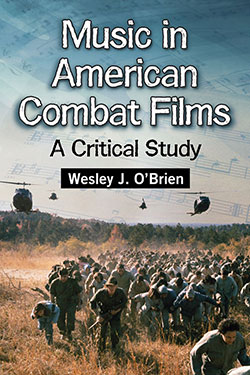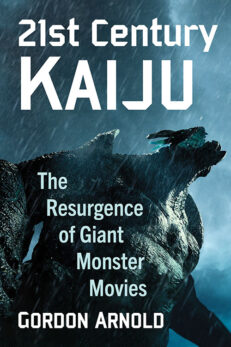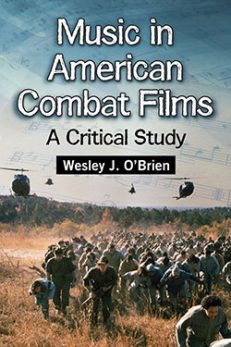Music in American Combat Films
A Critical Study
$35.00
In stock
About the Book
The book explores ways in which combat film scores interact collaboratively with other film elements (for instance, image and dialogue) to guide audience understanding of theme and character. Examined are classical and current models of film scoring practice and the ways they work to represent changes in film narratives taking place over time or from film to film. Differing approaches to scoring practice are considered as possible reflections of prevailing cultural attitudes toward war and warriors during the time of a film’s creation, the war it represents, or both. Observations of cinematic representations of masculinity, heroism and war raise questions regarding whether (and if so, to what extent) we have lost some measure of faith in our country’s motives for waging war and in the traditional models of what we think it means to be a hero.
About the Author(s)
Bibliographic Details
Wesley J. O’Brien
Format: softcover (6 x 9)
Pages: 196
Bibliographic Info: notes, bibliography, index
Copyright Date: 2012
pISBN: 978-0-7864-6343-5
eISBN: 978-0-7864-9296-1
Imprint: McFarland
Table of Contents
Table of Contents
Preface 1
Introduction: Film Scoring Practice and the American Combat Film 3
I. Scoring the Classical Combat Film and Conventions of the War Film Protagonist: The Story of G.I. Joe 19
II. The Vietnam Conflict Scored as a Conventional War Film: John Wayne Plays John Wayne in The Green Berets 42
III. The Ambivalent Hero: Major Heroic Malfunction in Full Metal Jacket 72
IV. Vietnam Redux: Scoring the Conflicted (Post–9/11) Hero in We Were Soldiers 97
V. Heroes Without a Cause: Scoring Practice and the Devolution of Combat Film Heroism in the Wake of Vietnam 116
VI. Re-Presenting “The Good War” 134
VII. Comparing Classical and Current Scoring Practices 158
Notes 177
Works Cited 180
Index 186





